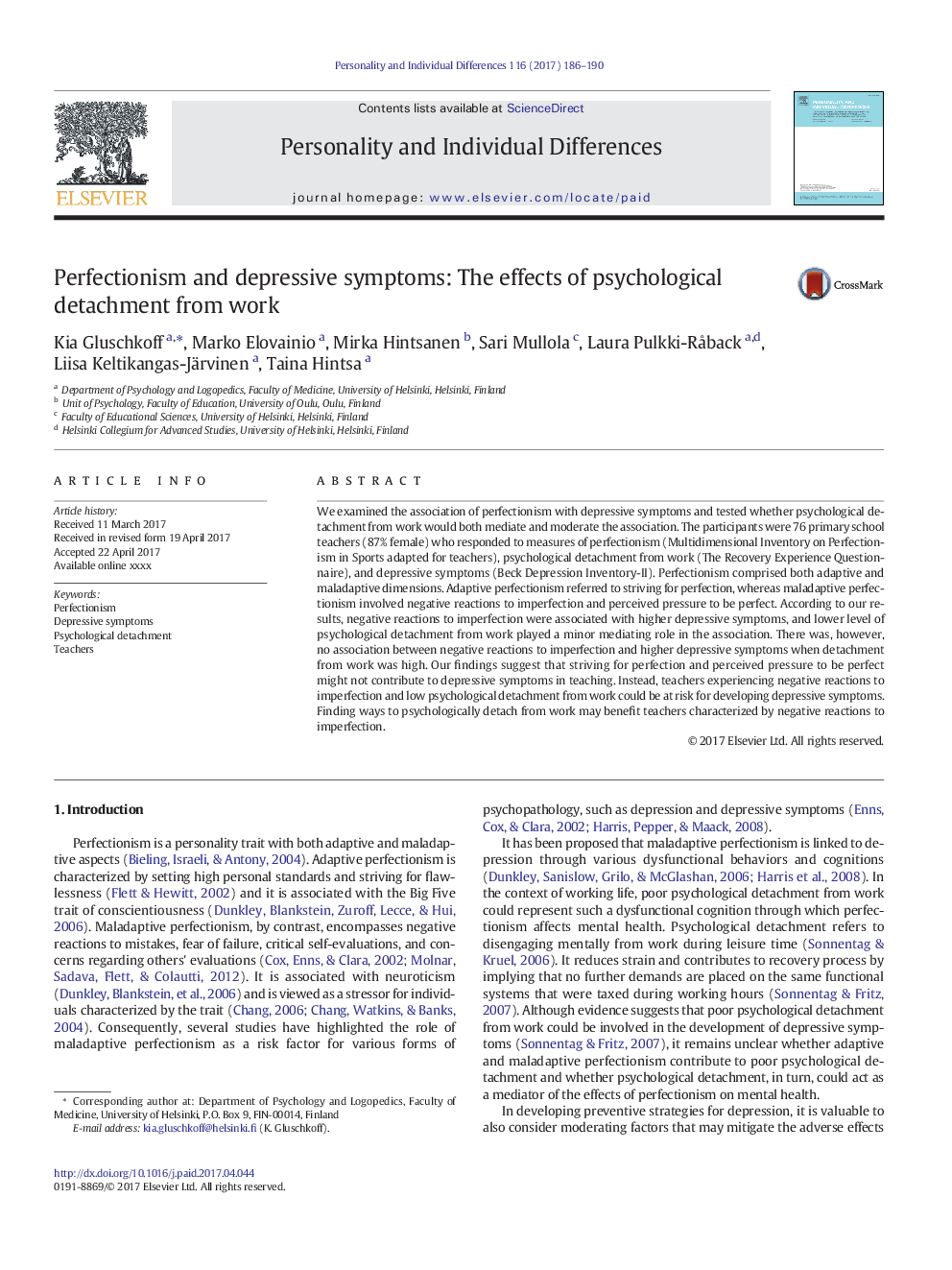ترجمه فارسی عنوان مقاله
کمال گرایی و نشانه های افسردگی: اثرات جدا شدن روان از کار
عنوان انگلیسی
Perfectionism and depressive symptoms: The effects of psychological detachment from work
| کد مقاله | سال انتشار | تعداد صفحات مقاله انگلیسی |
|---|---|---|
| 120693 | 2017 | 5 صفحه PDF |
منبع

Publisher : Elsevier - Science Direct (الزویر - ساینس دایرکت)
Journal : Personality and Individual Differences, Volume 116, 1 October 2017, Pages 186-190
ترجمه کلمات کلیدی
کمال گرایی، علائم افسردگی، جدایی روانشناختی، معلمان،
کلمات کلیدی انگلیسی
Perfectionism; Depressive symptoms; Psychological detachment; Teachers;

